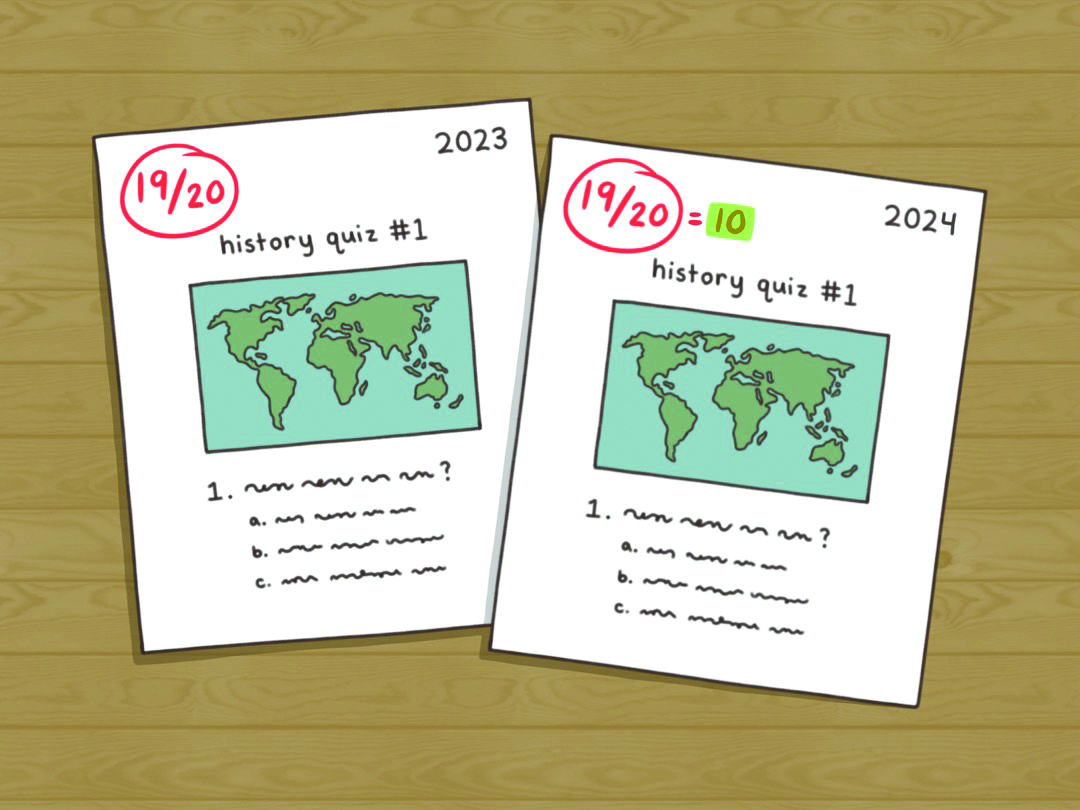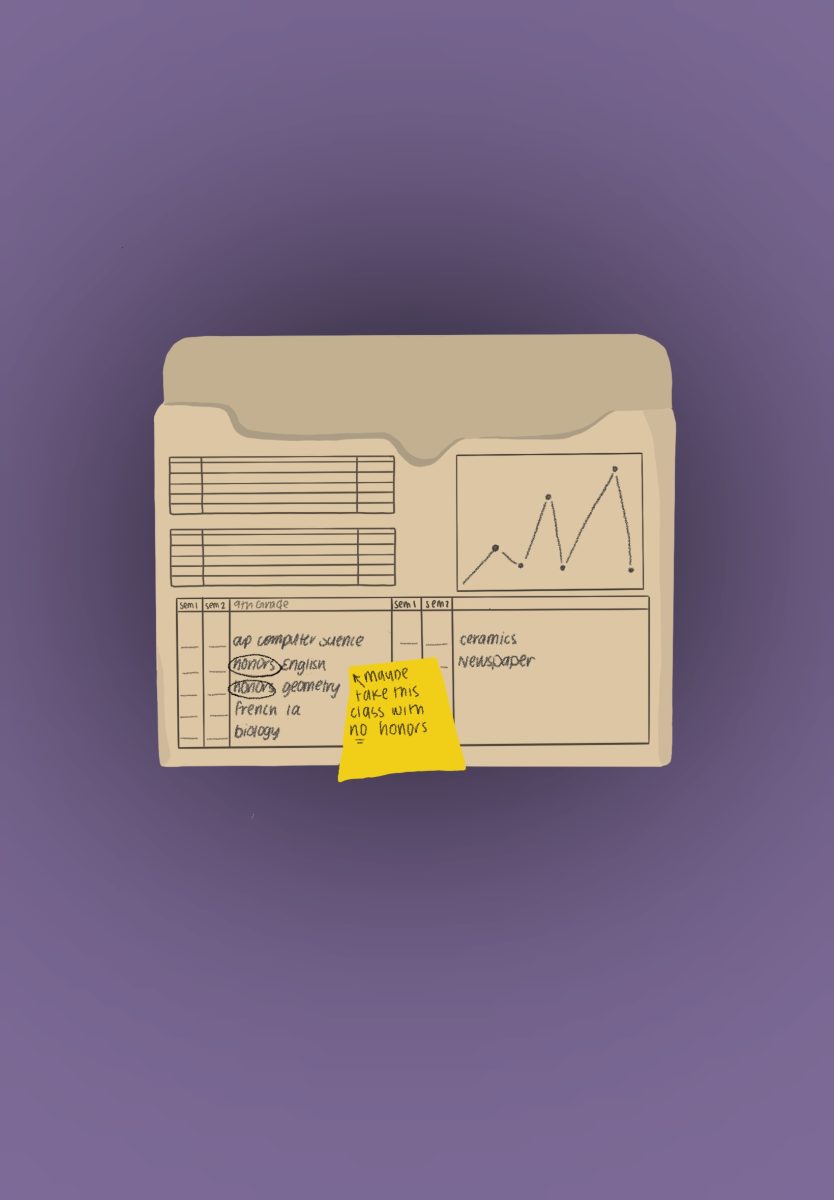On the first day of school each year, students travel between classes in a daze, struggling to comprehend the new grading systems. With grading methods constantly changing, the Marlborough community has to cope with added stress at the beginning of each school year while adjusting to their new classes. Marlborough should stop changing the grading system for individual classes because it confuses students and alters the difficulty of courses from year to year.
Following the COVID-19 pandemic, the administration gave teachers the freedom to experiment with new grading techniques, leading to almost nine distinct grading systems across disciplines. This year, the grading system has been standardized, and now teachers have the option to use the standard 100-point grading scale or alternative 5- or 4-point grading scales.
The changing grading scales unfairly advantage certain class years over others.
While a student who took the class in 2023 may have received an A on an exam, a student the next year might receive a B+ for answering the same number of questions incorrectly. This is just one example of how changes to the grading scales can influence the GPA of students each year.
Furthermore, these changes are usually announced on the first day of class, after students have made their course requests. Juliet ’26 said that students often rely on the advice of older students to make these choices, and when the grading systems change, it can negatively affect their academic experience throughout the year.
“When you are picking your courses, you learn from other people who have taken the course or other teachers who have taught the course,” Juliet said, “so to not have the knowledge of how the class is graded when you go into it is a rude awakening when you start the course.”
However, not only can the grading system changes make classes more challenging, they can also become easier.
Last year, if an AP World History student continually got one question wrong on each of the weekly reading quizzes, it could have meant the difference between an A or a lower grade on their transcript. This year, if a student gets one point off, they still receive 100% in the gradebook, which will boost their grade.
This system gives students currently taking AP World History an advantage. Kaila ’25, who took the class last year, said that while students in her class had to understand the units thoroughly to avoid getting one question wrong, students will not feel the same pressure this year.
“If students are having an inflated grading system they won’t be as motivated to understand the entire unit because they can get one or two questions wrong and still have a great grade in the class,” Kaila said.
However, Kaila also said the new grading scale could result in less stress for the Class of 2026.
“Their stress levels will be less than ours. There was such an emphasis last year on understanding every part of a unit that most likely will not be as emphasized in this class because you don’t need to know all that to get a good grade,” Kaila said.
The changes also cause added stress among the student body. Not only is it difficult to adjust to different grading systems between disciplines, but it is also hard to adapt to a new grading system each year.
The UV does not advocate for the same grading system in each discipline, as we understand that the grading may vary from subject to subject. However, we implore the administration to stop changing the grading scales so frequently and to consult student feedback regarding experiences with grading to avoid further stress and unfair advantages or disadvantages between classes.








